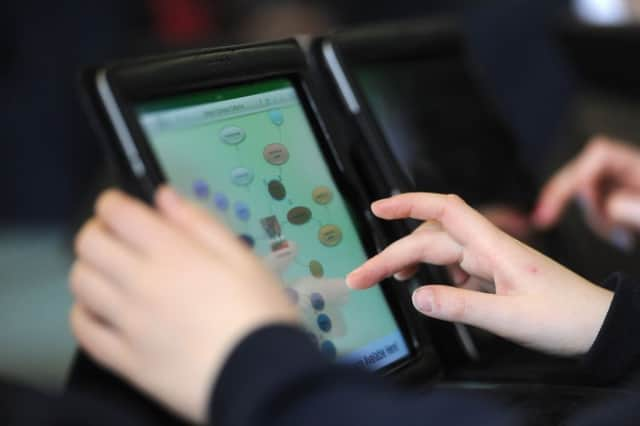Emily Murtagh: People using technology more than sleeping


According to a 2014 survey, the average person now spends more time using technology than sleeping. From the everyday experience of being fully absorbed in a computer task, to newer developments in which our brains can be directly linked to computers, it is difficult to predict where this will eventually lead us and what the implications may be.
As society takes part in this transformation into more immersive virtual reality experiences, how do we define these experiences in terms of our understanding of reality? Are our new technologies just tools for our reality, or are they an extension of our reality, a replacement of reality or a fantasy dimension into which we can enter and leave at will? And does it matter?
Advertisement
Hide AdAdvertisement
Hide AdFrom flicking through photos on your phone on a crowded bus on bleak mornings, to scrolling through holidays you know you will never book and clothes you will never buy, we all know the moments of escapism that technology can provide. But escapism is not necessarily a negative pursuit. In fact, it may be one we need to indulge in a little more in its most beneficial expressions.
The danger arises when a virtual world becomes more attractive to a person than their own reality and in some ways begins to take over. It is possible to get caught up in an existence that is in some ways occurring in parallel to real life but rendered free from the trickier and less pleasant aspects. This may leave a person more reluctant to act meaningfully in his or her own real life. From an ethical perspective, if an individual’s coping mechanisms are weakened rather than strengthened by escaping reality through technological use then it would seem an unhelpful way to spend his or her time. In other words, there is an ethical angle to escaping reality, with its corresponding advantages and risks.
A useful comparison when thinking about this is the experience of escaping with a book versus escaping with Facebook, which an on online social networking service between users, as a means of “being outside of ourselves”, for a little while. Unlike in the experience of films and books, there is no marked beginning and end point with such a social media. It is visually stimulating and visceral enough to maintain interest for long periods of time, but it does not usually give that dopamine high of a goal reached... Unless you have very definite notions of how much positive affirmation you are hoping to receive from your latest profile photo. This would account for the addictive nature of social media such as Facebook. There is a constant potential for surprise, and a constant flow that a person can lose themselves in for as long as they want.
On the other hand, the potentially more positive escapist pursuit of a good book or a film, takes us through a beginning, middle and end of some description. Our brain recognises the patterns of stories, the separation from one place, a journey, an incorporation of lessons learnt into the worldview of the main characters. Through journeying with characters we will usually identify with certain aspects of their struggles and victories and in some way assimilate them into our own understanding of our own gains and losses, which can have quite a beneficial potential. This is something J.R.R. Tolkien, author of The Lord of the Rings trilogy, wrote about quite extensively.
The important distinction seems to be whether we are looking for resources that help us towards the fulfilment that comes with confronting real reality head on, versus substituting that for the pleasure of temporary release from our everyday lives in virtual reality. There is responsibility, courage and beauty in real reality which enables individuals to become real persons confronting the real joys and hardships of life; the unfiltered, unedited edition.
As with many great works of fantasy literature, Lord of the Rings ends with a homecoming, the hobbits return to the Shire, with a new arsenal of resources with which to tackle the world where real suffering and joy exists. A good understanding of technology’s influence on our perception of virtual and real reality allows us to recognise its potential power and utilise new applications in a way that enriches our every day realities, liberating us from their more negative consequences.
• Emily Murtagh, Research Associate, Scottish Council on Human Bioethics